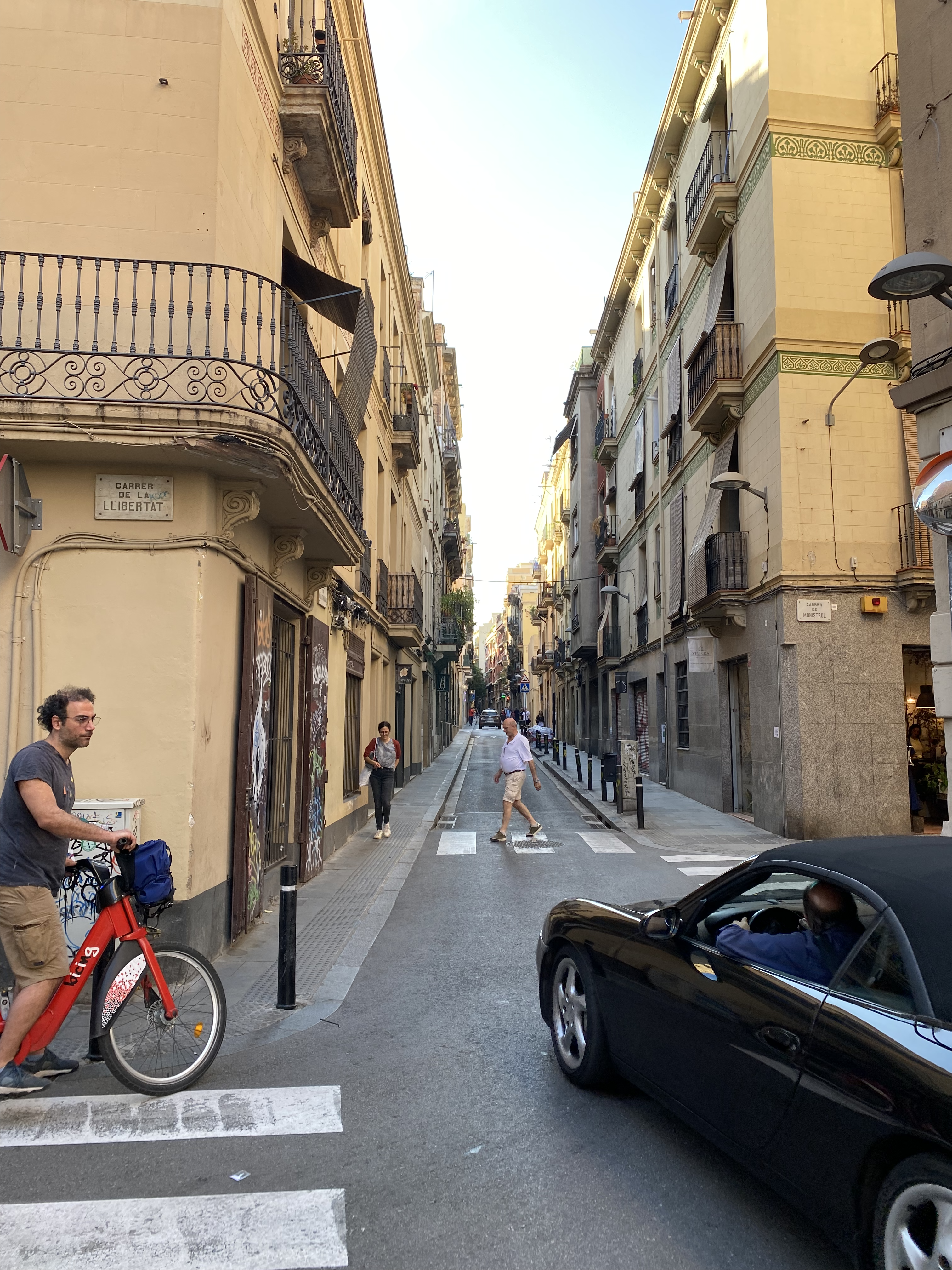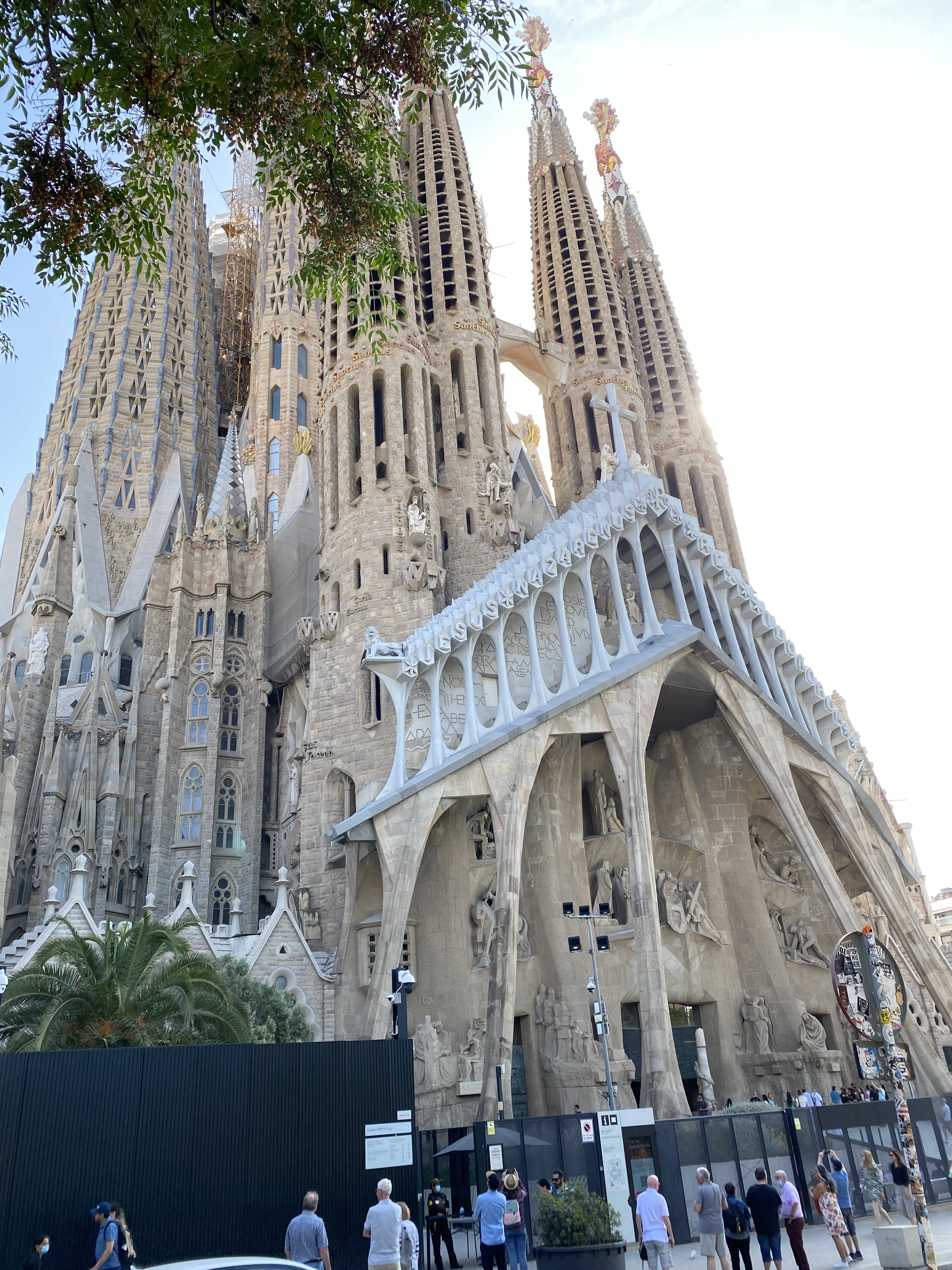- Published
Overview and Traveling to Barcelona
- Authors
- Name
- Jacob Patel
- @jseanpatel
Overview
¡Hola a todos! Bienvenidos a mi blog. Right now I'm traveling abroad Spain. To document my travels for my friends and family, I've decided to record my experiences here. I hope you all enjoy traveling with me.
A bit about the structure of this before we get into it — I hate feeling obligated to record events when I experience them. This blog isn't intended to be a diary or a Snapchat story, and I've made it a goal to avoid using devices as much as possible. So, I'm planning on using this space to record the best parts of my trip only at the end of the day when I feel like it.
Background
To better understand the reasons for my travels, I think it's important to understand my background and how I grew up.
Why are you in Spain?
As I've told some of you, I'm a Spanish-American and I spent a good portion of my childhood growing up in Spain. Specifically, my family is from the region of Galicia, which is in the very top, northwest portion of the country. Galicia is a coastal region that's famous for seafood, its deeply religious roots and ironically, for its extensive drug trafficking. In Galicia, we speak a language called Galician (Gallego en español) - a sort of halfway between Spanish and Portuguese. For reference, here's Galicia marked on a map:
Even though I grew speaking Spanish1 and practicing Spanish customs, I haven't been to Spain since before COVID-19 began. So, I decided to spend this summer first reconnecting with my roots, and secondly, doing some soul-searching for what I want with my life.
How does Spanish geography work?
Overall, Spain is composed of 17 autonomous regions and a handful of overseas territories, most spread across Africa and the Atlantic. Throughout this blog I'm going to liberally compare Spanish regions with American states, but the structure of both really isn't the same. Spanish regions each have a more distinct, and vibrant culture — and their individual identities play heavily into the politics of the country. I'll cover that later.
Where are you right now?
Right now I'm in the autonomous region of Catalonia in the capital city of Barcelona. You might have heard of Catalonia, because they are famous for being the separatist region, which is a legacy from the Spanish Civil War. By the way, understanding the war is pretty important to understanding the contemporary Spanish geopolitical climate. Here's that same map from earlier but with Catalonia marked:
Catalonians want to break apart from the rest of Spain to form their own country of Catalonia (in Spanish, Cataluña). Because of this, Catalonians assert their culture, language and identity to an extreme. For example, if you're a tourist in the area you'll find that a larger percentage of locals speak English than other parts of the country. This is because there is a general avoidance of speaking Spanish, because speaking Spanish is closely tied a having a strong national identity. Oddly enough for this same reason, my family has told me people might treat you worse if you speak Castilian Spanish here.
In Catalonia, the most dominant language, after Spanish, is Catalan, which is basically 50% French, 30% Spanish, 20% other random languages added in just to make things difficult. Let me tell you, there is no more awkward feeling than talking to someone in Spanish and having them continually speak Catalan to you. Especially if you're in a tight situation like getting interrogated by the hotel staff because you forgot your key in your room, and they think you're not actually a guest. Good thing that didn't happen to me or else that would be bad.
Alright, then what's the Spanish Civil War?
Since you asked, I'll go ahead and explain.
Here's a table summarizing the sides of the war.
| Republican forces | Nationalist forces |
|---|---|
| Preexisting government | Revolted against preexisting government |
| Supported by USSR, France and Mexico | Supported by Fascist Italy, Nazi Germany and Portugal |
| Controlled Western Spain and Morocco | Controlled Eastern Spain |
| Led by socialist leader Francisco Largo Caballero | Led by dictator Francisco Franco |
| Mostly Roman Catholics, military leaders, most landowners, and businessmen | Mostly urban workers, agricultural laborers, and the educated middle class |
| Aligned with Real Madrid | Aligned with FC Barcelona2 |
The war was ultimately won by the revolting Nationalist forces and Francisco Franco ruled Spain with virtually unilateral power for the next 36 years.
Remember when I said regional identities are very significant here? During the war, there were strong efforts by both sides to silence the cultural expression of occupied peoples. For example, in my home region of Galicia, the Nationalist occupiers outlawed the education of the Galician language, Gallego3. What this means conventionally is that no one in my mom's generation is able to read or write in Galician. As a result, there's this almost, "lost generation" of Galicians that still are around today.
Think of it this way, imagine everyone in your parents' generation couldn't read or write reliably in English. Yeah, it's that crazy.
Hearing stories from my aunts and uncles about how strictly they cracked down on anything that deviated culturally is both incredible and scary. These types of stories are common throughout the country. This is important because nowadays, an opposite movement has occurred as each individual region has begun to over-assert their individual identity. Try to keep this in mind as context as you follow my travels.
My Travels
Now that we've covered why I'm traveling, let's talk about the actual traveling.
Journey to Barcelona
I just flew from San Francisco International to Aeropuerto Josep Tarradellas Barcelona-El Prat. The flight was pretty good actually. I was planning on getting to the hotel around 6 PM local time, so I decided to try to stay up on the plane and get the jump on my jet lag. My plan worked until I forgot to go to sleep later that night, and then I was right back to square.
Walking the streets

I don't know why, but I just love the aesthetic of Spanish streets. Vibrant colors, well-dressed passerby, cute animals — what more could I guy ask for. In between sightseeing I've been spending a lot of time just sitting on a bench people-watching and let me tell you it's like a whole thing in this country. If I had unlimited euros and unlimited benches, I would spend unlimited hours just watching the happenings of these cities.
By the way, one of my main objectives with this blog is sharing the cultural aspects of being Spanish — the kind of things that you can't Google.
One of the most famous Spanish sayings is:
No pasa nada
Translated literally it means "nothing happens." Not only will you hear this phrase 100 times a day if you’re around Spaniards, I think it’s an important expression to know because it kinda sums up the Spanish way of looking at things. In general, the people here are more laid-back and less "tightly-wound" than we are in the states. Some things that we might take very seriously or think about as having dire consequences are just not as severe here.
Don’t get me wrong, you can’t skip your final exam and expect your professor to be all "no pasa nada about it." But still, there’s something freeing about escaping the infinitely-climbing mentality we have in the United States.
Overall, think of it like hakuna matata, but you're in Spain instead of Africa. Here's a picture of the gang for posterity:
The University of Barcelona
I also spent an afternoon traveling to the University of Barcelona to code. It's fun to see how students on the other side of the world live and go to school. What's crazy is how these people literally go to school at Hogwarts, while most of us have had to settle for Unit 3. Take a look at some pictures.
Also fun fact, this website you're looking at is my brand-new developer portfolio! I've been spending a lot of time on it so if you have any feedback I'd love to hear it. If you're curious here is the link to the last version, and here is my first version from back in high school.
La Basílica de la Sagrada Família
La Basílica de la Sagrada Família is a large, unfinished Roman Catholic basilica located in Barcelona. What's special about it, is that even though its construction began in 1882, and its building plans are very optimistic, it's famous for being incomplete (reminds me a lot of my schoolwork). Jokes aside, this is like the Statue of Liberty of Barcelona, so I had to take a look.

What have I been eating?
Miscellaneous
What have I been listening to?

DPR ARCHIVES - DPR LIVE, DPR IAN, DPR CREAM
I've never been a K-pop fan, but a friend sent this to me a while back and I finally got around to listening to it. It's actually fantastic. Great nighttime listen, but not in a go-to-sleep kind of way.

Come Home The Kids Miss You - Jack Harlow
I might be behind times, but I also just listened to the new Jack Harlow. It's definitely different than K-pop, I'll tell you that much. Overall, I really liked it.
Where am I headed next?
Next I'm headed to a city called Pineda de Mar, which is also located in Catalonia. It's a beach town, and I'll be there for about a week — can't wait.
Closing note
Feel free to add any comments or reactions below. To do so, you'll have to make a GitHub account which is free and really easy. You can make a GitHub account by clicking here. If you want to send something privately feel free to email me at hello@jseanpa.tel. Thanks for reading, it means a lot. I'll see you again soon.
Footnotes
- It's correct to say Spaniards speak Spanish, but it's more accurate to say we speak Castilian Spanish (Castellano en español). I'll be using any of these names interchangeably.↩
- If you have trouble keeping Spanish football teams straight, just know that this is the L team.↩
- Every region in Spain has their own local language. Nowadays, schoolchildren learn Spanish, their local language and usually English or French.↩